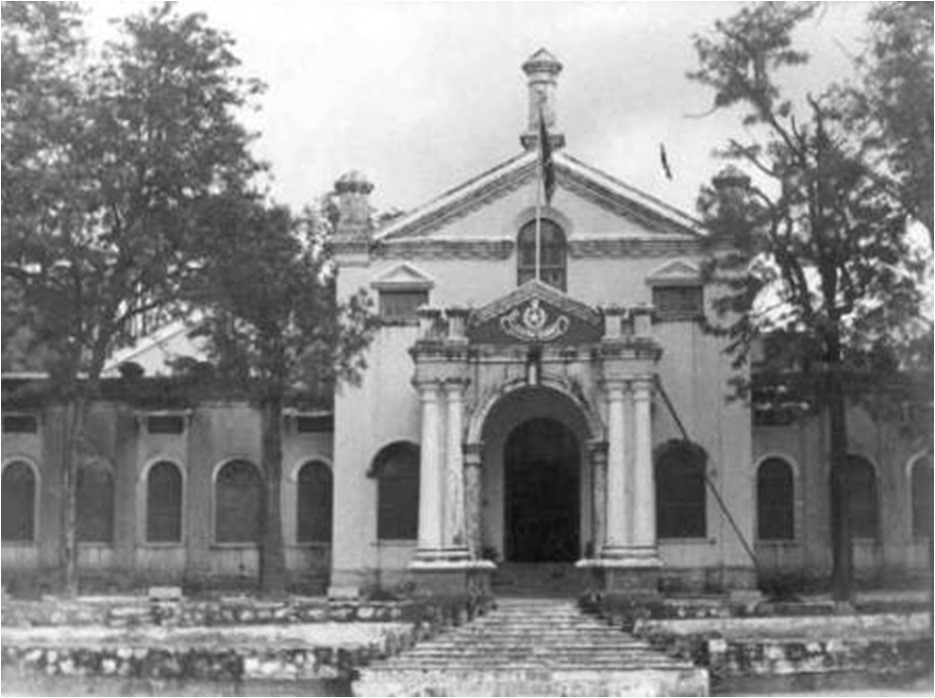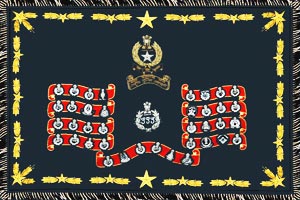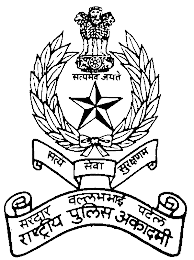History of Academy
Locale
Nestling amidst verdant hills in the historic city of Hyderabad and spread over about 293 acres of land, is the permanent abode of the Indian Police Service (IPS) - Sardar Vallabhbhai Patel National Police Academy (SVPNPA), the premier police training institution in the country.
Further, The Academy acquired 392 acres of land at Ibrahimpatnam mandal of Ranga Reddy District in Telangana, which is 40 kilometers from the existing campus of the Academy.
Evolution
Indian Police (IP) officers, until the country became independent, received probationary training in their respective provincial police training colleges. Since their training was not based on any uniform pattern or system, they did not know one another and many of them did not even have the opportunity of knowing the system of police work in other parts of India.
After Independence, Sardar Vallabhbhai Patel, the first Union Home Minister emphasized the importance of having a ring of services which would keep the country intact under a Federal Constitution. He said, “...the Union will go, you will not have a united India, if you do not have a good All India Service, which has the independence to speak out its mind...”. Thus was born the Indian Police Service (IPS) as an All India Service, as successor service to the IP.
The constitution of the Indian Police Service as an All India Service necessitated a common pattern of police training. With a view to imparting induction training to the new entrants to the IPS who were drawn from all regions of the country and different strata of society, the Central Police Training College was established in Mount Abu (Rajasthan) on September 15, 1948. The ready availability of a few unused army barracks at Mount Abu was the prime consideration for the choice. But within a year, the Army authorities wanted back the M.E.S. buildings and thus began the nomadic existence of this institution, in the rented buildings of the Rajputana Hotel and the Abu Lawrence School, etc. in Mount Abu.

The idea of setting up such a training institution for IPS was Sardar's brainchild. Through this measure, he forged a new uniformity of purpose and professional competence, which provided the needed protection to the national fabric. In a message, Sardar Patel had said, "The College is the first institution of its kind in India. It has no precedents to look back upon but has an inspiring example to set for future generations. It has to build itself and build others. It has to create among its alumni that love and reverence for their Alma mater which are at once the pride and heritage of an educational institution. May it secure all this from the devotion and attention of its inmates...". These words have guided the functioning of this institution.
This institution was renamed as National Police Academy in 1967. As a befitting token to the memory of Sardar Vallabhbhai Patel, the Iron Man of India, who had the foresight and dynamism to think in terms of all-India level Police Service, the Academy was named after him in 1974.
In 1971, a Committee on Police Training, with Dr. M.S. Gore as Chairman and members consisting of many professional and other experts, was set up by the then Prime Minister of India to go into all aspects of the training of police officers in the country. The Committee recommended, inter alia, that the Academy should shift to a central location, preferably to a home of its own with permanent buildings. In February 1975 the Academy finally moved from Mount Abu to its permanent abode at Hyderabad. So far 73 batches comprising 5922 officers of the Indian Police Service and other officers of CPOs/State Police organisations have passed out of this institution.
Academy
The National Police Academy (NPA), trains officers of the Indian Police Service, who have been selected through an All India based Civil Services Examination. The trained officers will be posted as Assistant Superintendent of Police (ASP) in their respective states under whom the other sub-ranks of police force will be working. The IPS cadre is controlled by the Home Ministry of the Government of India and the officer of this service can only be appointed removed by an order of the President of India.
Apart from the Basic Training Course for IPS officers the Academy also conducts Compulsory Mid Career Training Programme for officers of SP., DIG. and IG/Addl DG levels of the Indian Police Service; Training of Trainers' Courses for the trainers of various police training institutions in the country; IPS Induction Training Course for State Police Service Officers; and short specialised thematic Courses, Seminars and Workshops on professional subjects for all levels of police officers. Foreign police officers and other officers belonging to Army/IAS/IFS/Judiciary, Public Sector Undertakings, Nationalised Banks, Insurance Companies etc. also attend various specialised courses conducted here from time to time. The Academy is affiliated to Osmania University for conducting courses on police subjects for IPS officers.
Academy Board
A high level Academy Board comprising senior civil/police officers, eminent educationists etc. as its members is headed by the Union Home Secretary. The Board periodically reviews inter-alia the syllabi and training methodology of various courses conducted in the Academy.
President's Colours

In recognition of the outstanding achievements of the academy and its service to the Nation, the Academy received the President's Colours on its 40th Anniversary on September 15, 1988.
